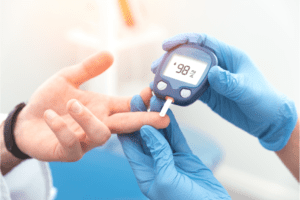—
If you enjoyed this video, check out my dedicated Shorts playlist –
Any one of our videos have the power to transform your body and your life so make sure you never miss one by clicking here to subscribe
—
Hi I’m JJ, welcome to my channel. If you’re looking to lose weight, boost your energy and look and feel fabulous and fit over 40, you’re in the right place.
Here you’ll find the healthy recipes, fitness routines and the nutrition information you need to achieve healthy weight loss that stays off.
Welcome to the family!
—
NEW FOR 2022:
MY MOST POPULAR VIDEOS:
THE VIRGIN DIET – LIFESTYLE SHOW:
HEALTHY RECIPES:
SHORTS:
—
#JJVirgin #BloodSugar #Insulin #Diet #WeightLoss #Shorts #Health #Wellness #LoseWeight #FatLoss #DietTips #Tips #Hacks
—
Does your weight fluctuate a lot? Are you always struggling to keep the pounds off, no matter how hard you try? If so, then controlling your blood sugar levels might be the key to weight loss success. Blood sugar control is crucial for maintaining a healthy weight, and in this article, we'll show you how to do it. So read on and learn how to take charge of your blood sugar – and your waistline!
What is blood sugar?
Blood sugar, or glucose, is the main type of sugar found in your blood. It's a key source of energy for your body, and it comes from the food you eat. When you eat foods that contain carbohydrates, such as bread, pasta, rice, and fruit, your body breaks them down into glucose and other nutrients. This process is called digestion.
 How does blood sugar affect weight loss?
How does blood sugar affect weight loss?
When you have too much glucose in your blood, it can lead to weight gain. Insulin is a hormone that helps control blood sugar levels. When there's too much glucose in your blood, your body produces more insulin. Over time, this can lead to weight gain and obesity.
How can I control my blood sugar levels?
There are a few ways you can control your blood sugar levels and lose weight:
– Eat more fiber: Fiber helps slow down the digestion of carbohydrates, which helps regulate blood sugar levels. Good sources of fiber include whole grains, fruits, vegetables, and beans.
– Avoid sugary foods: Foods that are high in sugar can cause your blood sugar to spike. Choose foods that are lower in sugar instead, such as fresh fruits and vegetables, lean protein, and whole grains.
– Exercise regularly: Exercise helps your body use insulin more effectively, which can help control blood sugar levels. Aim for at least 30 minutes of moderate-intensity exercise most days of the week.
 What are some other tips for losing weight?
What are some other tips for losing weight?
In addition to controlling your blood sugar levels, there are a few other things you can do to lose weight:
– Eat a healthy diet: Eating a diet that's high in whole foods, such as fruits, vegetables, and whole grains, and low in processed foods, can help you lose weight.
– Get enough sleep: Getting enough sleep is important for weight loss. Studies show that people who don't get enough sleep are more likely to be overweight or obese.
– Reduce stress: Stress can lead to overeating and poor food choices. Try to manage stress through relaxation techniques, such as yoga or meditation.
Controlling your blood sugar levels is crucial for weight loss. Eating a healthy diet, exercising regularly, and getting enough sleep can help you control your blood sugar and lose weight. If you're struggling to lose weight, talk to your doctor about other treatment options, such as medication.
For people who are overweight, controlling blood sugar levels is essential to losing weight. When blood sugar is uncontrolled, it leads to insulin resistance and eventually diabetes. Diabetes is a serious disease that can cause many health complications, including heart disease, stroke, kidney disease, blindness, and amputations. Losing weight can help control blood sugar levels and reduce the risk of developing these complications. Remember, it’s important to be patient and consistent if you want to see long-term success. Contact us today for more information on our weight loss programs or how we can help support your healthy lifestyle goals!



 How does blood sugar affect weight loss?
How does blood sugar affect weight loss? What are some other tips for losing weight?
What are some other tips for losing weight?
Do you recommend checking our blood levels once in awhile to see how we are doing?